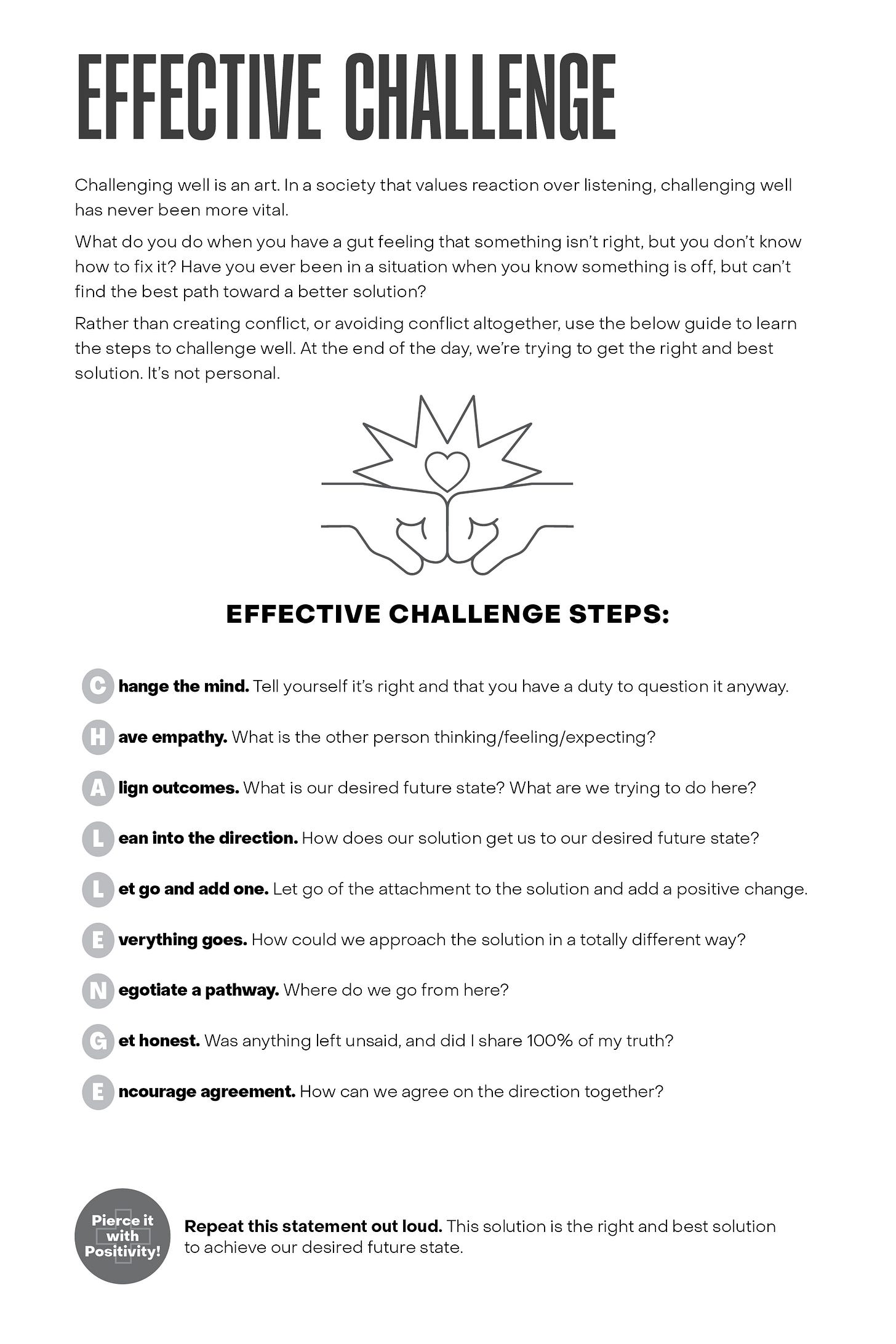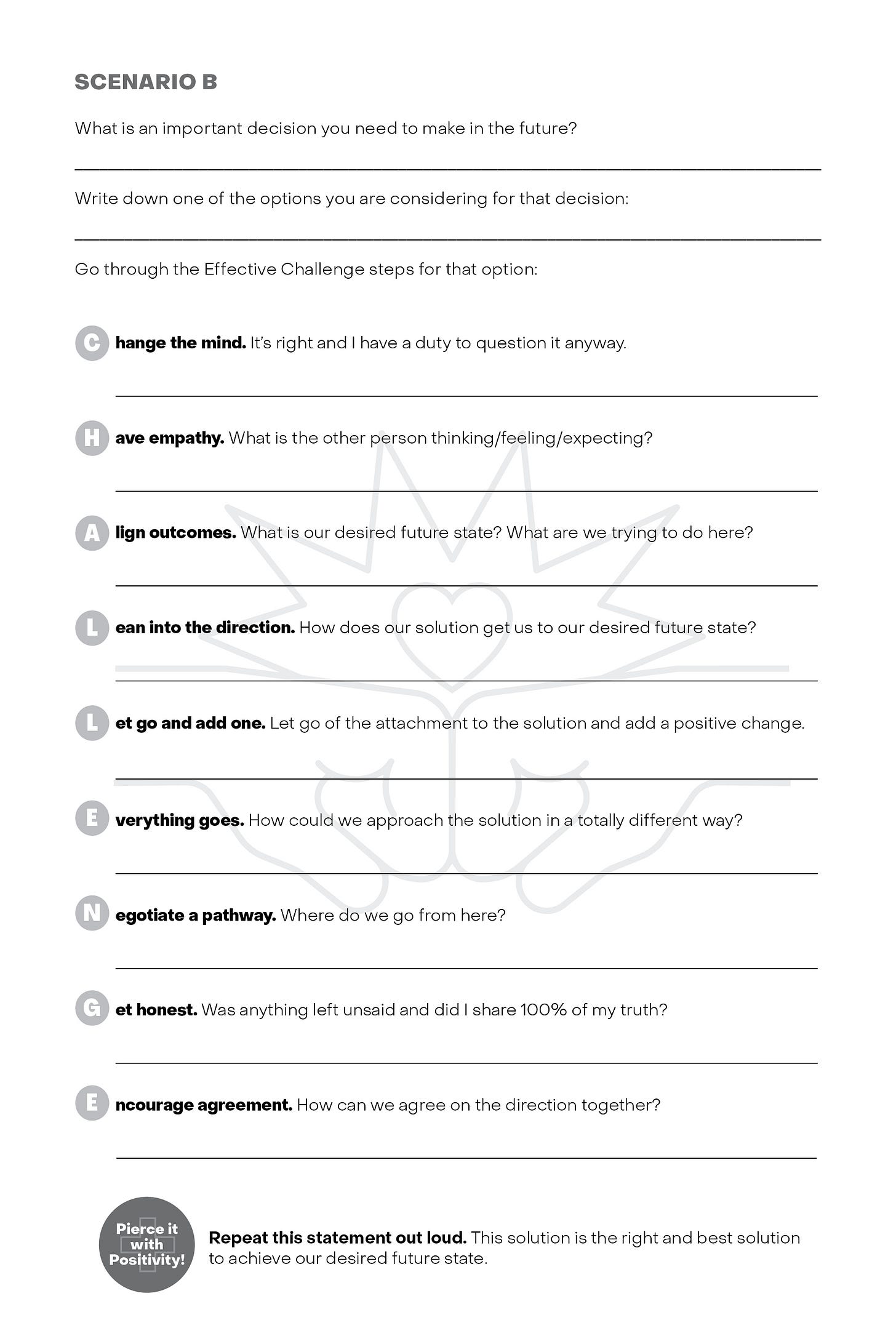“Challenge encourages us to invite in and seek out what can be revealed that we did not see before. It allows us to vigorously advocate for diverse perspectives and elevate healthy discourse.” – Brad Deutser, Belonging Rules
The quote above captures my approach to the Effective Challenge – a critical tool in the belonging rule of Challenge Everything that I explore in my forthcoming book. Below is an excerpt that offers greater depth into my experience with the effective challenge and how it serves leaders in creating spaces for belonging.
By offering an effective challenge, a leader will be more equipped to create the capacity for the deep conversations and elevated thought that increase understanding and produce better outcomes. Navigating challenges is also a competency that leaders require to protect themselves as they expand in ways that create larger spaces for others to belong. Often, when challenge is approached as conflict, it pushes people away. At my firm, however, we rely on challenge as a method to bring people deeper inside and to spur a higher level of creativity.
The leader’s commitment to challenge everything is critical, because once we accept that our abilities are always applied within a context that is going to change, we can learn to trust and rely on ourselves in a whole new way. Challenge encourages us to invite in and seek out what can be revealed that we did not see before. It allows us to vigorously advocate for diverse perspectives and elevate healthy discourse.
Traditional leadership values “knowing,” but knowing is a temporary state. Many leaders and managers believe everything is knowable today, but that thinking is faulty, because what’s not knowable is the future or humans’ reaction to it. Knowledge can be whole in any given moment, but never complete. Leaders who claim to “know” and then rest there tend to become inflexible and even may be unconsciously fearful of learning something new. A better place to steady yourself as a leader is through knowing that you have access and input from a multitude of sources; that you can collaborate with and draw from many perspectives: and that you can trust yourself to use information, intuition, experience, and diverse input to actualize the best possible outcome. Since most of us naturally resist change, it is vital that you take a different mindset, believing instead that possibilities emerge within change and that the process of challenging can enhance this emergence as various options are considered, courted, and coaxed.
When you shift expertise to a kind of thinking rather than knowing, it can open you and your entire leadership team to more agility in getting from one state to another with greater trust and ease. The intentional leader uses all that is available to get to whatever or wherever is next, while thinking about the next, the next after the next, and the next after that. Great leadership requires you to continuously extend and challenge your thinking, your presence, your connection to your people, and your concept of the desired future state. Anticipation fed by greater understanding is the key to being prepared for what is possible, probable, or plausible.
Regardless of where they begin, leaders can use an approach that actually invites people in and encourages not just the conversation but also the possibility of a different outcome and renewed creativity. This leadership tool, the Effective Challenge, was developed by Deutser to provide greater clarity and confidence as an alternative to the well-worn pro/con list that we’re all so familiar with. Such lists often end up being a crutch that simply reveals what it is that we want to do versus what we need to do. That can be valuable, too, but an Effective Challenge is about exposing yourself to ideas and input that you might be overlooking. It invites and plays with difference in a way that surfaces new ideas, perspectives, and thought patterns.
Check out the below exercise to work through the effective challenge on your own (it takes ~15 minutes) or with your work team! I hope you enjoy this and would love to hear from YOU – how do you challenge? Do you see the relationship between conflict and challenge the same way? What’s your version of the “effective challenge”? If you're interested in fostering a culture of belonging in the organizations and communities you lead, my book Belonging Rules is now available for pre-order: https://bit.ly/3VYo6Nr.




